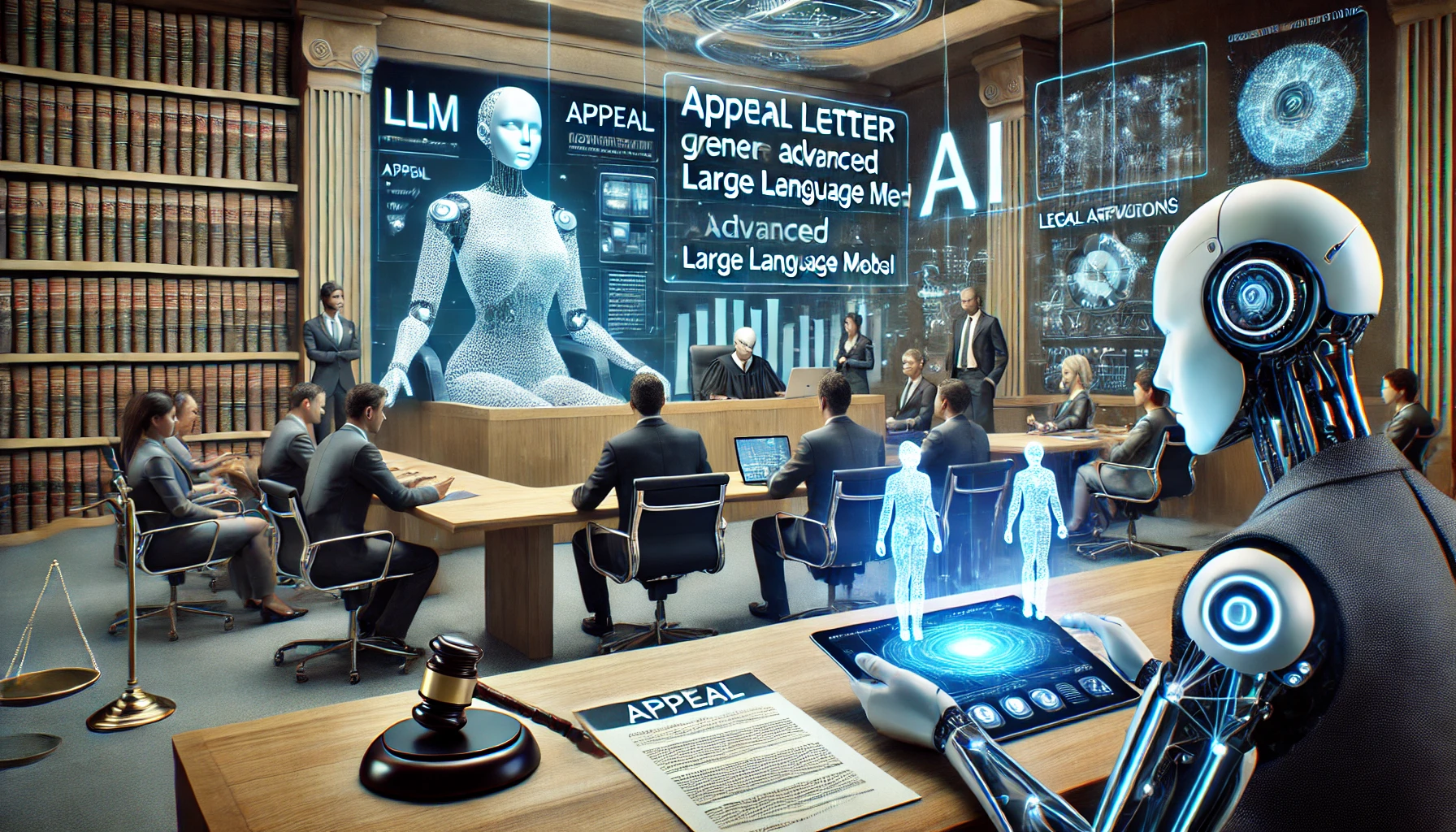The legal industry, traditionally viewed as conservative and slow to adopt change, is undergoing a profound transformation due to advancements in artificial intelligence (AI). Among the most groundbreaking developments is the use of large language models (LLMs) to automate legal appeals. This innovation promises to make the legal process more efficient, accessible, and affordable for individuals and organizations alike.
Understanding LLMs in Legal Contexts
Large Language Models, such as OpenAI’s GPT or Meta’s LLaMA, are AI systems trained on vast amounts of textual data. These models can understand, generate, and analyze human-like text, making them ideal for tasks like drafting documents, summarizing case law, and answering legal queries. Their ability to process complex legal language and adapt to specific jurisdictions enables them to assist in highly specialized fields like appeals automation.
Automating Appeals: The Need for Change
Legal appeals are a crucial part of the justice system, offering individuals a chance to challenge unfair or erroneous decisions. However, the appeals process is often riddled with challenges:
- High Costs: Hiring legal experts to draft and file appeals can be prohibitively expensive.
- Complexity: Understanding legal jargon and procedural requirements is daunting for the average person.
- Delays: Appeals can take weeks or months, often due to administrative bottlenecks.
By integrating LLMs, these barriers can be significantly reduced. AI-driven solutions can streamline the process, making justice more accessible to a broader audience.
How LLMs Can Automate the Appeals Process
- Document Analysis and Case Evaluation
LLMs can analyze case documents to identify grounds for appeal. They can pinpoint procedural errors, misinterpretations of law, or overlooked evidence, providing a foundation for drafting a strong appeal. - Drafting Appeal Letters
With the right prompts and training, LLMs can generate legally sound appeal letters tailored to specific cases. These letters can include technical, procedural, and legal arguments to strengthen the appellant’s position. - Jurisdiction-Specific Adaptation
Modern LLMs can be fine-tuned to accommodate jurisdiction-specific legal frameworks. This ensures that the appeals they generate comply with local laws and procedural requirements. - Enhancing Pro Se Representation
For individuals unable to afford legal representation, LLMs offer a cost-effective way to prepare professional-grade appeal documents. This democratization of legal expertise could bridge the gap in access to justice.
Challenges and Ethical Considerations
While the potential of LLMs in legal appeals is vast, it is not without challenges:
- Accuracy and Accountability: AI models must ensure high levels of accuracy in legal interpretations to avoid compounding errors.
- Bias in Training Data: If the data used to train LLMs includes biases, the generated appeals may inadvertently perpetuate inequities.
- Data Privacy: Handling sensitive legal documents requires stringent data security measures.
- Human Oversight: While LLMs can draft appeals, human legal professionals are still essential to review and validate the output, ensuring compliance with ethical standards.
Real-World Applications and Case Studies
Emerging platforms and projects are already exploring the use of LLMs in automating legal appeals. For instance:
- Custom AI Solutions: Legal tech companies are developing proprietary LLMs trained specifically on legal data to offer tailored services for appeals in various jurisdictions.
- Open-Source Models: Projects utilizing open-source LLMs, such as Llama 3.2, demonstrate how these technologies can empower individuals to contest fines, tickets, or administrative penalties with minimal cost.
The Road Ahead
The integration of LLMs in legal tech is only the beginning. As these models become more advanced, they may soon be capable of handling more complex legal tasks, from full case management to courtroom argumentation. Key developments to watch include:
- AI-Augmented Law Firms: Blending human expertise with AI efficiency to provide hybrid legal services.
- Regulatory Frameworks: Governments and legal bodies establishing guidelines to govern the ethical use of AI in law.
- Global Accessibility: Expanding LLM-based legal services to underrepresented regions, ensuring global access to justice.
Conclusion
The future of AI in legal tech is poised to revolutionize how appeals are managed. By automating tedious and complex processes, LLMs can make the legal system more efficient and equitable. However, the legal community must navigate challenges carefully, balancing innovation with ethical responsibility. As these technologies mature, they hold the promise of transforming not just the appeals process, but the broader legal landscape itself, fostering a more accessible and just world.
[SEO optimized]


